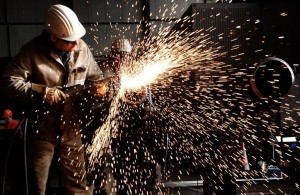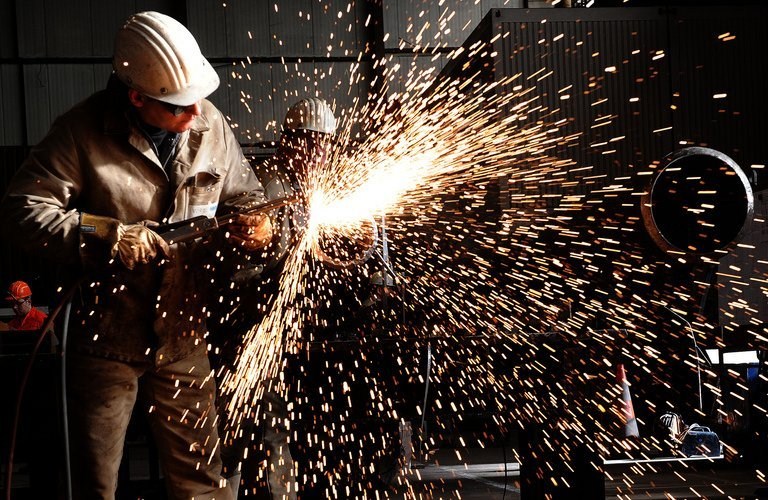
(AFP FILE PHOTO)
Minister of Industry and Foreign Trade Mounir Fakhry Abdel Nour met with Ezz Steel, Beshay Steel, and Suez Steel – the three largest companies producing iron and steel in Egypt – on Sunday, in order to discuss the repercussions of the increase in energy prices on steel mills.
The prices were recently approved by the government in the context of several decisions to increase fuel and energy prices.
The government raised gas prices by $3 for the iron and steel industries. The price for 1m British Thermal Units (BTU) of energy now stands at $7.
Director General of the Chamber of Metallurgical Industries in the Federation of Industries Mohamed Hanafi attended the meeting and said that the steel mills asked the minister to review the decision to increase the prices of gas and electricity for steel plants. This came with special emphasis on large plants that produce iron at various stages, as the cost of the product has been raised to EGP 280 per ton as a result.
“We explained to the minister that the sponge iron industry uses gas as one of the inputs and not only as a source of energy. There also can’t be two prices for electricity, in which it costs EGP 34 in normal times and EGP 51 in peak times, because the steel plants which have melting furnaces do not have a peak time or a normal time. They cannot just stop and re-start work,” stated Hanafi.
Hanafi said that the factories had requested that gas used in the manufacture of sponge iron be treated similarly to its use in the fertiliser industry, for which the government set the price of gas at $4.5, given that it is used as an input for production.
“The minister has called for factories to prepare a memorandum containing the repercussions on the economics of the industry and the cost of production following the increase in energy prices, and to include proposed solutions within the memorandum,” Hanafi added.
He said factories cannot increase the price of the final product, even as imported iron is flooding the market at cheaper prices.
“Even if the government agreed to impose customs or protective duties on imports of iron, the competition in the domestic market will continue to be dysfunctional as a result of high cost of production on large plants valued at EGP 260, while the smaller plants which import billet from outside of the country will only pay between EGP 40 and EGP 50,” Hanafi stated.



